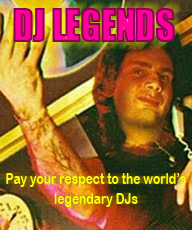Analog n Stuff
Analog n Stuff Posted on: 24.02.2013 by Stan Brevil So here's a topic of great debate for all of you: How analog is analog enough?There's no getting around the fact that "the average" analog synth sounds a hell of a lot different that "the average" softsynth. It seems like there's an awful lot of emphasis on getting softsynths to sound more analog, but when is enough? With enough time you could theoretically take a sample from a hardware synth, use enough oscillators in an additive softsynth, subtract your signal from the sample, and use the difference to add more oscillators and tune it down to the transients (which you could also generate in the softsynth). So how close is important? And also, why purchase a dozen different hardware synths for different processes instead of getting one good analog oscillator (or set of them) and process the signal with software? It'd still be "analog" and a hell of a lot cheaper. What're your thoughts? | |
| Ervin Calvery 25.02.2013 |
Originally Posted by tgcasals
Originally Posted by tgcasals
Originally Posted by tgcasals
Originally Posted by tgcasals
|
| Ervin Calvery 24.02.2013 |
Originally Posted by tgcasals
Originally Posted by tgcasals
|
| Stan Brevil 24.02.2013 |
Originally Posted by botstein
I am certainly guilty of wanting gear for the sake of having it (and I don't necessarily believe thats a bad thing). I definitely understand the purism to some degree, but at some point you could spend enough time modeling to get a software generated signal that would be indistinguishable from its analog counterpart (again after both had been recorded). That's Fourier theory. The real question is how much work would it be and would it be worth it. And right now the market has reflected that the answer is no. |
| Ervin Calvery 24.02.2013 |
Originally Posted by tgcasals
Originally Posted by tgcasals
I love soft synths, but understand purism in terms of analog signal path. In the back of my mind, acquiring some Moog gear is in my five-year plan. I recently shared a piece (art music, not dance music) which was realized in Max, and received comments that it would have been better had it been performed with a large, analog, modular system... but I've learned to ignore such naysayers. I suppose people are entitled to their opinion, but I am (dangerously, precariously) close to (having a not-ironclad defense to the accusation that I am guilty of) acquiring gear for acquiring gear's sake. I hope to own one some day, but I'm not of the delusion that my music will be better just for owning it it. |
| Stan Brevil 24.02.2013 | So here's a topic of great debate for all of you: How analog is analog enough? There's no getting around the fact that "the average" analog synth sounds a hell of a lot different that "the average" softsynth. It seems like there's an awful lot of emphasis on getting softsynths to sound more analog, but when is enough? With enough time you could theoretically take a sample from a hardware synth, use enough oscillators in an additive softsynth, subtract your signal from the sample, and use the difference to add more oscillators and tune it down to the transients (which you could also generate in the softsynth). So how close is important? And also, why purchase a dozen different hardware synths for different processes instead of getting one good analog oscillator (or set of them) and process the signal with software? It'd still be "analog" and a hell of a lot cheaper. What're your thoughts? |
| Stan Brevil 25.02.2013 | Also that is a very good thread/post |
| Stan Brevil 25.02.2013 | CDJs are a carry over from vinyl mixing, but not a very good one. Vinyl decks are big round plates because, well, vinyls are big round plates. There is no reason to use plates as a control surface for mixing unless that is what you are used to, and I believe that if you are used to nothing, most people would prefer sliders/knobs or whatever. And CDs are clearly outdated as well. Stuff does definitely happen, and again, no one can argue that analog and software sounds sound the same, but an analog sound recorded straight to vinyl versus one recorded (discretized) and then cut to vinyl would be pretty much indistinguishable so the argument that processing analog signal with software makes it "not analog", while true, is irrelevant. As for the sound design stuff, I guess there aren't many chiptune songs that are "great" but the hyperbole explains my argument. I'll explain further using the example of two of my favorite artists (judge if you will): Daft Punk and Deadmau5. Daft Punk I credit largely for having very simple song composition from an orchestral standpoint and very good execution (which is definitely a component of how good their music is), but in my opinion the thing that makes their music is how good the individual sounds are and how well they fit together; they have the "best" pulsing sidechained bass. Deadmau5 on the other hand (although this one is weird because he definitely fills both rolls) I believe more of on the composition side. A bunch of his four on the floor progressive house songs have weird non-4/4 timings that evolve throughout the track and such. While I can't particularly discount his sound design because that is good as well, a lot of the sounds aren't particularly spectacular. Keep in mind that these being some of my favorites its not like either only has one component of a good song, but I believe the point still stands that the sound design itself (interesting, different, and dynamic synths and instruments) can take a simple and basic track and turn it into something "great". And from that standpoint the creation of those synths is a worthwhile endeavor. |
| Ervin Calvery 25.02.2013 |
Originally Posted by tgcasals
Originally Posted by tgcasals
Originally Posted by tgcasals
Originally Posted by tgcasals
|
| Stan Brevil 24.02.2013 | Haha you're right again on the vinyl front, it definitely is still a valid means of recording. I believe vinyl decks are still worth keeping around (although I believe CDJs are an analagous and expensive middle ground and shouldn't really exist any more). That being said, the point of my statement was that cutting vinyl is one of the few analog methods of recording left, so it is exempt for the recording discretization argument. I still believe that argument is valid though, one because the majority of listeners (especially of electronic music) do not listen to vinyl, and two because even though there is no discretization, the fidelity is altered to the point where a high bit depth/sampling rate software generated track cut to vinyl would be pretty much indistinguishable (as far as the discretization goes) from an analog track. And I suppose I'd say maybe just hoarding gear and keeping it under plexiglass cases is flawed, but what I meant was more the sound being the end point. I believe while producing good music is certainly a noble end, I believe it might be noble as well to want a piece of gear just because "awww, I bet I could make some really weird and different squawks if I had XXX". Maybe a less noble end on an interpersonal level, but on a personal one maybe not so. A great song can be made with gameboy sound chips, but then again great songs have been made from very simple melodies and compositions because of great sounds. Or at least I believe so. |
| Ervin Calvery 24.02.2013 |
Originally Posted by tgcasals
Originally Posted by tgcasals
|
| Stan Brevil 24.02.2013 |
Originally Posted by botstein
I am certainly guilty of wanting gear for the sake of having it (and I don't necessarily believe thats a bad thing). I definitely understand the purism to some degree, but at some point you could spend enough time modeling to get a software generated signal that would be indistinguishable from its analog counterpart (again after both had been recorded). That's Fourier theory. The real question is how much work would it be and would it be worth it. And right now the market has reflected that the answer is no. |
| Ervin Calvery 24.02.2013 |
Originally Posted by tgcasals
Originally Posted by tgcasals
I love soft synths, but understand purism in terms of analog signal path. In the back of my mind, acquiring some Moog gear is in my five-year plan. I recently shared a piece (art music, not dance music) which was realized in Max, and received comments that it would have been better had it been performed with a large, analog, modular system... but I've learned to ignore such naysayers. I suppose people are entitled to their opinion, but I am (dangerously, precariously) close to (having a not-ironclad defense to the accusation that I am guilty of) acquiring gear for acquiring gear's sake. I hope to own one some day, but I'm not of the delusion that my music will be better just for owning it it. |
<< Back to Producer tips and DAW informationReply



